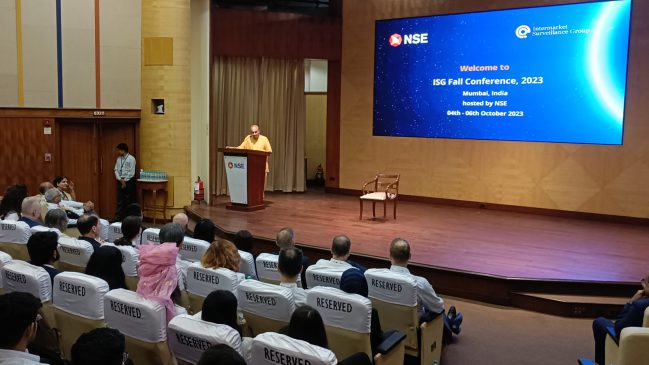Compassion Fatigue – Cost of Caring

Compassion and Kindness, emotion of the heart
To make the human world a better place to live in, they play a huge part
It doesn’t matter whom you meet, or where you go,
With Compassion and Kindness in your heart, you can never go wrong, do you know?
In a corner of my class, I saw a child shivering, the next corner I saw someone hovering
With mixed emotions in front of me, my heart was already in the world which was topsy turvy
I want to hug each of my students, be there for each one,
Ensure each one’s health, physical or mental and ensure everything needed done
The feelings I carry weight just as much as sound and light,
I carry them day and night, not knowing whether wrong or right
Each child wanting more, from the super-person mask I wear
I am ready to stretch, I am ready to drench
I am ready to believe, I am ready to give,
But I too am in need, till now I only gave indeed
It is in giving that you receive, but it is in receiving that you get the power to give back.
Am I asking for too much, or that I don’t know how to dodge?
I am here for my students, but can I do it alone?
Students are with me for a certain time, but for sure I cannot be their parents’ clone
I always see my children flying high, but their flight, a single wheel cannot buy
So, parents I am their one wheel and you the other only then can this plank ensure journey forward
I request your partnership in voyage, because I know you too are concerned.
Compassion Fatigue – Cost of Caring, for both, be it parents, be it teachers.
In the world of psychology, compassion fatigue is a relatively recent idea. It is recognised as a distinct type of burnout and first featured in the study on nursing burnout.
The Pandemic made teachers work which happened in the four walls of the school, directly exposed to all the eyes present at home. Every eye at home was a witness to the smallest action of the teacher who taught online. For teachers it was absolutely new and keeping up to every expectation and criticism put forth by the parents the teachers already had a high rate of burnout during the pandemic.
Parents too unknowingly experienced this burnout and were directly so involved in a child’s life which otherwise was absolutely unknown to them to a great extent. Everything the child had to or was doing during online classes was well within the reach of the parents.
These tables turned the moment the Physical school started and children, parents and teachers again had to churn themselves to adapt to the absolutely unknown, unexpected and unthought of new challenges.
The children who have been indoors for 2 years had to manoeuvre their way in the school just to reach their classes which they had earlier done so very easily. Those children who were between age 3-5 during the pandemic and did not get an opportunity to go to school, get detached from their mothers, but mothers became their offline teachers; these children have had greater issues in settling in this new environment. These children have not been able to be independent in finding things for themselves.
For that matter even Primary children had to move from Pre-primary section could not be detached from their parents for the long-stipulated time of the primary section and similar for those students who has to go from Primary Section to Secondary section.
To summarise those children who were in Nursery, Sr. KG and Grade 5 in the AY 2020-2021 all did not have a chance to go to Physical school and promoted to the next section too online. These children need a lot of compassion and care to get accustomed to the school environment.
Overall, all the children coming to school after 2 years of gap have in some form or the other need of being guided, spoken to, understood for and adjusting to the New Normal. All these factors have forced the teachers to have an exceptional level of empathy, understanding towards their students and their parents. However, teachers that have a high level of empathy also have a tendency to be more excited about their profession and will provide their pupils more attention, knowledge, enthusiasm, and excellent education. Although each teacher has the ability to complete these obligations, when instructors are overworked, their capacity may be progressively depleted and their compassion may not be fully gratified. Empathy-expressing is a common component of the training and teaching processes for instructors. Teachers will experience “compassion fatigue” fast if they expend a lot of empathy and other psychological energy on empathising with kids but are unsuccessful in doing so.
The physical, emotional, behavioural, cognitive, interpersonal, and professional performance of teachers who are suffering from compassion fatigue will change. For example, they may become drained, numb, or distant from their students, become impatient or intolerant of their needs, produce poor teaching, or feel less responsible.
So how can teachers overcome their burnout and sustain themselves in the education field, continue being there for their students?
Mindfulness and Self-Compassion are the two remedies that teachers can turn to ensuring better mental and physical health for self
Vicarious trauma may be lessened by using self-awareness as a self-care strategy (compassion fatigue). According to Buddhist tradition, practising mindfulness helps people let go of their “suffering” and develop a connection to and awareness of the suffering of others.
The purposeful practise of engaging “the body, feelings, states of thought, and experience phenomena (dharma)” is how mindfulness uses the road to consciousness. As examples of therapeutic techniques for mindfulness self-care, here are some: Emotion-focused treatment (feelings), somatic therapy (body), psychotherapy (states of mind), and Gestalt therapy (experiential phenomena)
Teachers need to keep their psychological well-being in check in order to provide the greatest care for their students. Untreated compassion fatigue may make it more difficult for a teacher to provide clients with the care they need. The psychological functioning of some counsellors who include self-compassion in their self-care routine has increased. By practising self-compassion, the teacher may be able to reduce any vicarious trauma that arises from hearing unsatisfaction and high expectation demands from parents. Both parents and teachers can benefit from using self-compassion as a self-care strategy.
Do the parents also face Compassion Fatigue? Can the Parent-School Partnership do something to reduce the Compassion Fatigue of Teachers and Parents?
–







